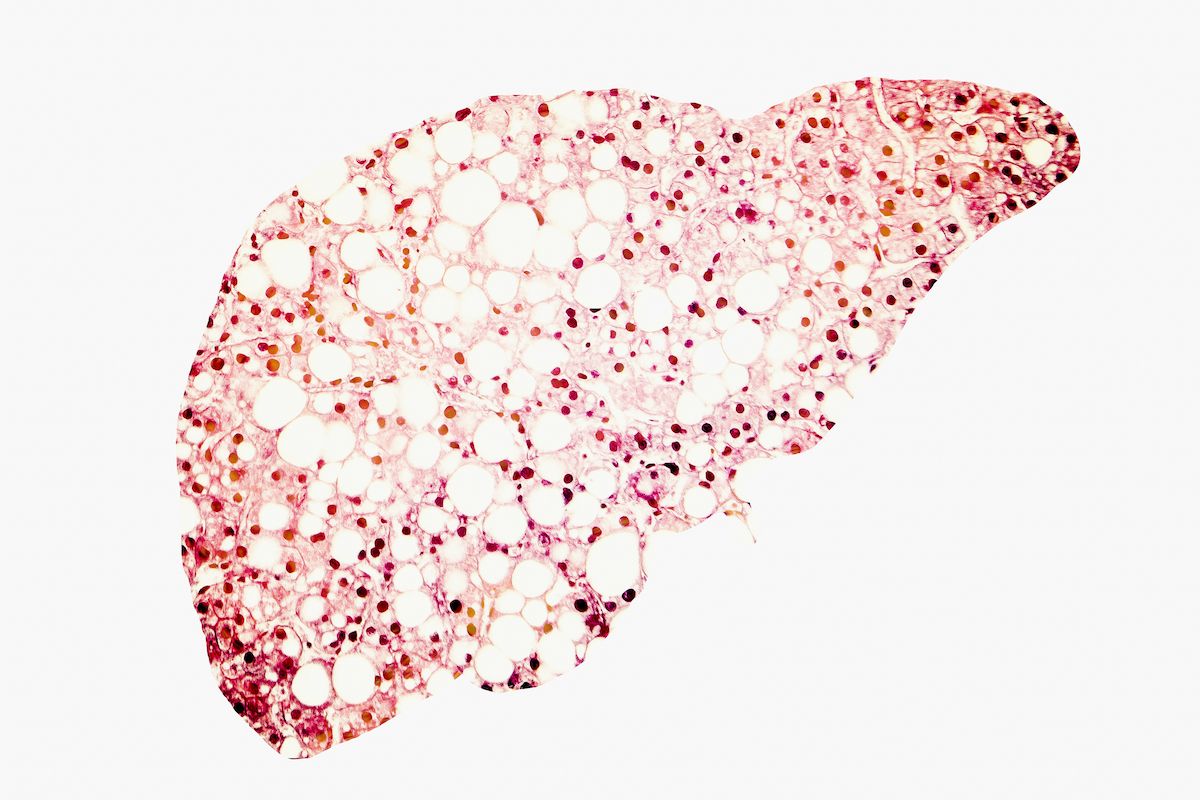Nivolumab/Ipilimumab Yields Sustained Responses in Advanced HCC
The 5-year follow-up results from CheckMate 040 showed consistent responses with nivolumab/ipilimumab in advanced hepatocellular carcinoma.
The minimum follow-up was 60 months, and the median follow-up was 62.6 months. Across the entire cohort of patients, the median age was 60 years old, 81% were male, and 64% were Asian.

A long-term survival benefit was consistently observed when nivolumab (Opdivo) and ipilimumab (Yervoy) were combined to treat patients with advanced hepatocellular carcinoma (HCC), according to 5-year results from the phase 1/2 CheckMate 040 trial (NCT01658878).1
A total of 148 patients were randomly assigned 1:1:1 to 3 different dosing regimens. Those in arm A (n = 50) were given nivolumab at 1 mg/kg plus ipilimumab at 3 mg/kg every 3 weeks for 4 doses. Arm B (n = 49) was given nivolumab at 3 mg/kg plus ipilimumab at 1 mg/kg every 3 weeks for 4 doses. Arms A and B were followed by nivolumab at 240 mg every 2 weeks. Arm C (n = 49) was given nivolumab at 3 mg/kg every 2 weeks plus ipilimumab at 1 mg/kg every 6 weeks.
The objective response rate per investigator assessment was 34% (95% CI, 21%-49%) in arm A, 27% (95% CI, 15%-41%) in arm B, and 29% (95% CI, 17%-43%) in arm C (n = 49). A complete response was observed in 2%, 2%, and 0%, respectively. A partial response occurred in 32%, 24%, and 29%, respectively.
The median duration of response per investigator assessment across all arms was 51.2 months (95% CI, 12.6 month-not estimable [NE]), 15.2 months (95% CI, 7.1-NE), and 21.7 months (95% CI, 4.2-NE), respectively. The median time to response was 2.6 months, 2.6 months, and 1.6 months. In all arms, the disease control rate was 64%, 45%, and 45%.
“Different doses and schedules of nivolumab plus ipilimumab were evaluated in patients with advanced HCC who were intolerant to or progressed on sorafenib [Nexavar] in [the] CheckMate 040 study. With a median follow-up of 30.7 months, the arm A regimen of nivolumab plus ipilimumab followed by nivolumab until intolerance or disease progression demonstrated durable clinical benefit,” according to a statement from the study authors cited in a press release by the European Society for Medical Oncology.2
The minimum follow-up was 60 months, and the median follow-up was 62.6 months. Across the entire cohort of patients, the median age was 60 years old, 81% were male, and 64% were Asian. A total of 94% of patients in arm C had Barcelona Clinic Liver Cancer stage C disease vs 92% in arm B and 86% in arm A. Additionally, 75% of patients had a Child-Pugh score of 5.
Treatment was discontinued in 92% of patients in arm A, 96% in arm B, and 94% in arm C at the data cutoff. Across all groups, disease progression was the most common reason for discontinuation (53% vs 73% vs 77%). Other reasons for discontinuation included drug toxicity (24% vs 10% vs 4%).
The median progression-free survival in arm A was 6.8 months (95% CI, 2.7-16.4), 2.7 months (95% CI, 1.4-4.2) in arm B, and 2.7 months (95% CI, 1.4-4.4) in arm C. The median overall survival (OS) in arm A was 22.2 months (95% CI, 9.4-54.8), 12.5 months (95% CI, 7.6-16.4) in arm B, and 12.7 months (95% CI, 7.4-30.5) in arm C. At 36 months, the OS rates were 42%, 26%, and 30%, while the 60-month rates were 29%, 19%, and 21%, respectively.
Across arms A, B, and C, the median duration of treatment was 5.1 months (95% CI, 2.7-9.3), 2.3 months (95% CI, 1.4-6.3), and 4.0 months (95% CI, 2.1-6.7). Grade 3/4 treatment-related adverse effects occurred in 55%, 31%, and 35%, with the most common being increased aspartate aminotransferase, increased lipase, and hyponatremia.
In arm A, there was 1 treatment-related death due to grade 5 pneumonitis within 100 days after the last dose of treatment. During the 5-year follow-up, there were no additional grade 5 events observed.
References
- Melero I, Yau T, Kang YK, et al. Nivolumab plus ipilimumab combination therapy in patients with advanced hepatocellular carcinoma previously treated with sorafenib: 5-year results from CheckMate 040. Ann Oncol. 2024. doi:10.1016/j.annonc.2024.03.005
- Nivolumab plus ipilimumab demonstrates long-term survival benefit in patients with advanced HCC who were sorafenib intolerant or refractory. News release. European Society for Medical Oncology. May 28, 2024. Accessed May 29, 2024. https://shorturl.at/pFcBc
Adapting to a Robotic Workstation for Image-Guided Liver Cancer Surgery
December 4th 2023Govindarajan Narayanan, MD, speaks to the potential time-saving advantages of using the Epione robot for microwave ablation, cryoablation, and other surgical strategies in patients with liver cancer and other tumors.